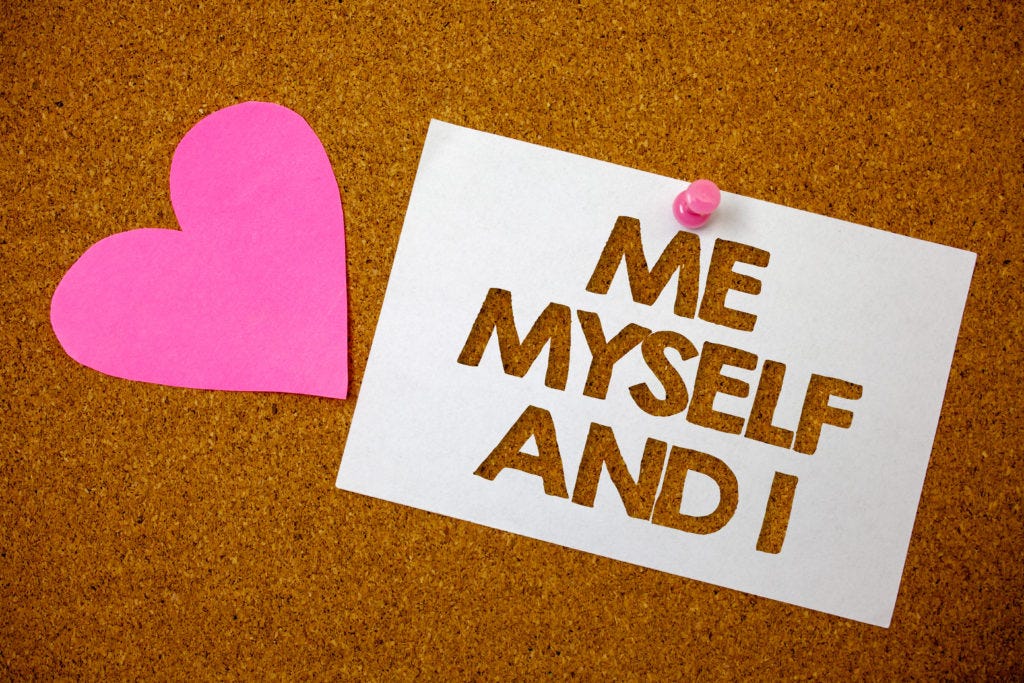Self-love sounds like a good idea but it can be double-edged sword. Narcissism is clearly not a positive trait, and on the other side self-criticism can help you grow. I explore the ups and down and probably what we mean by self love.
I went through a phase of going to meditation courses and groups a few years ago. It did me good, I am sure – I have read the science. It certainly felt good at times.
Funnily enough though my desire to meditate slowly evaporated as I worked more with the SCOAP model and that is insightful in itself. During these meditation sessions a common theme was love thyself, self-compassion, and not beating yourself up. Interesting is that these were proposed as if this was the natural state of affairs. Which can lead us to surmise that
1. not loving yourself is the standard nature of human beings
…or alternatively
2. not loving yourself is a common feature of those who are attracted to meditation.
Indeed, if we read online motivational blogs, self-criticism is a common theme – so indeed it does appear to be considered a key theme and therefore common. However, in trying to review the academic literature to get a grip on how common this is, I found it difficult to find any solid research to give an indication of how widespread this is. However, some work I did on the SCOAP model and self-esteem may give us something to get a grip on.
In our data on SCOAP we found that the desire for Self-Esteem was consistently ranked as the number one need therefore making this the most important human need on average.
This is interesting because it shows that we have a high desire for self-esteem, and this is consistent in human beings. But what is also interesting is that if this is rated highly it also means that damage and non-fulfilment is also likely to cause disruption. If I want high self-esteem and don’t achieve it, it will cause a mismatch – and therefore also an emotional reaction. Dissatisfaction or frustration of sorts. So, in short, self-esteem appears to be our most powerful need, meaning we are most sensitive to damage or threat to it.
Also, within self-esteem there are multiple factors at play which I have analysed in much more detail in my analysis and presentation at the BPS Coaching Psychology Conference in 2015 – first, is that there is a strong social component, something called the Sociometer (first proposed by Leary et al. in 1995). We tend to rank ourselves against others and through we may blame society and systems in society – this is unfair, we do it automatically, it is instinctive. We do compare ourselves to others no matter how often we say, “Don’t compare yourself to others”.
This comparison though, goes through different stages, with teenagers being particularly sensitive to various social comparisons. To be embarrassed is a big thing in teenage years, as my teenage daughter keeps telling me.
As we age this becomes less important and we become less sensitive to various forms of showing ourselves up. Of note is also what is known as the spotlight effect, which teenagers are particularly sensitive to, is that we overestimate how much attention people take of us, as shown neatly in an experiment by Gilovich et al. in 2000:
Keep reading with a 7-day free trial
Subscribe to leading brains Review to keep reading this post and get 7 days of free access to the full post archives.




